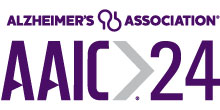PRESS RELEASE
BAN2401 Phase 2 Data Released at AAIC 2018
CHICAGO, July 25, 2018 — At the Alzheimer's Association International Conference 2018, Eisai Co., Ltd. and Biogen Inc. announced additional results of a Phase II clinical trial (Study 201) of BAN2401. The trial sponsors announced topline results on the 18-month analysis on July 5. Though the trial was negative on the primary Bayesian analysis, as reported in December of 2017, at AAIC 2018, the researchers reported additional results on several of the trial’s secondary outcomes, including reduction of amyloid plaques and improvement of cognition and function, though the trial was not powered to demonstrate efficacy in cognitive outcomes.
On behalf of the millions living with Alzheimer’s disease and other dementias now and the millions more at risk, the Alzheimer’s Association finds these results important to report and share with the scientific community. The data is intriguing and we look forward to hearing the sponsors’ plans for moving forward.
This is the second Alzheimer’s clinical trial that has demonstrated both clearance of amyloid from the brain and cognitive benefits - again, the studies were not large enough to definitely demonstrate cognitive efficacy and the BAN2401 study did not meet its primary endpoint. That said, these two studies indicate that amyloid remains an important therapeutic target to pursue in Alzheimer’s disease.
The Alzheimer’s Association is encouraged by the varied approaches being explored by the research field to treat and prevent Alzheimer’s disease. The scientific community consensus is that we may need combination therapy in the future - that may include anti-amyloid approaches as well as other approaches to potential treatments that address multiple aspects of the disease, and include both drug and lifestyle interventions.
At the Alzheimer’s Association, we will not stop; we will not slow down in our fight against this terrible disease.
The global urgency to better treat and prevent Alzheimer’s disease and other dementias is higher than ever, and growing. We must expand our therapeutic targets and ideas, including drugs but also lifestyle and other non-drug therapies, and all these things in combination. For example, the Alzheimer’s Association – the leading non-profit funder of Alzheimer’s research – is conducting the U.S. POINTER Study. U.S. POINTER is the first large-scale U.S. study to evaluate whether lifestyle interventions can protect cognitive function in older adults at increased risk for cognitive decline.
To discover and investigate more opportunities for better Alzheimer’s therapies, we need additional federal funding for research to achieve the first goal of the National Plan to Address Alzheimer’s Disease – to effectively treat and prevent Alzheimer’s by 2025. While the U.S. Congress has significantly increased Alzheimer’s and dementia research funding at the National Institutes of Health since the passage of the National Alzheimer’s Project Act, the commitment continues to fall far short of what researchers say is needed.
The Alzheimer’s Association calls on Congress to continue its commitment to Alzheimer’s and other dementias by increasing funding for research by at least an additional $425 million in fiscal year 2019.
The Alzheimer’s Association International Conference 2018 is the premier global conference on Alzheimer’s and dementia research. It features the latest advances and discoveries from the world’s leading scientific and clinical researchers, clinicians and the dementia care research community.
About the Alzheimer’s Association®
The Alzheimer’s Association is the leading voluntary health organization in Alzheimer's care, support and research. Our mission is to eliminate Alzheimer’s disease through the advancement of research: to provide and enhance care and support for all affected; and to reduce the risk of dementia through the promotion of brain health. Our vision is a world without Alzheimer’s®. Visit www.alz.org or call 800.272.3900.
Media Contacts:
Alzheimer’s Association AAIC Press Office, 312-335-4078, media@alz.org
Niles Frantz, Alzheimer's Association, 312-335-5777, niles.frantz@alz.org
lg > 992px
md > 768px
sm < 767px
xs
